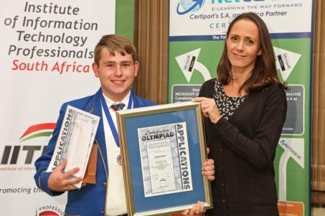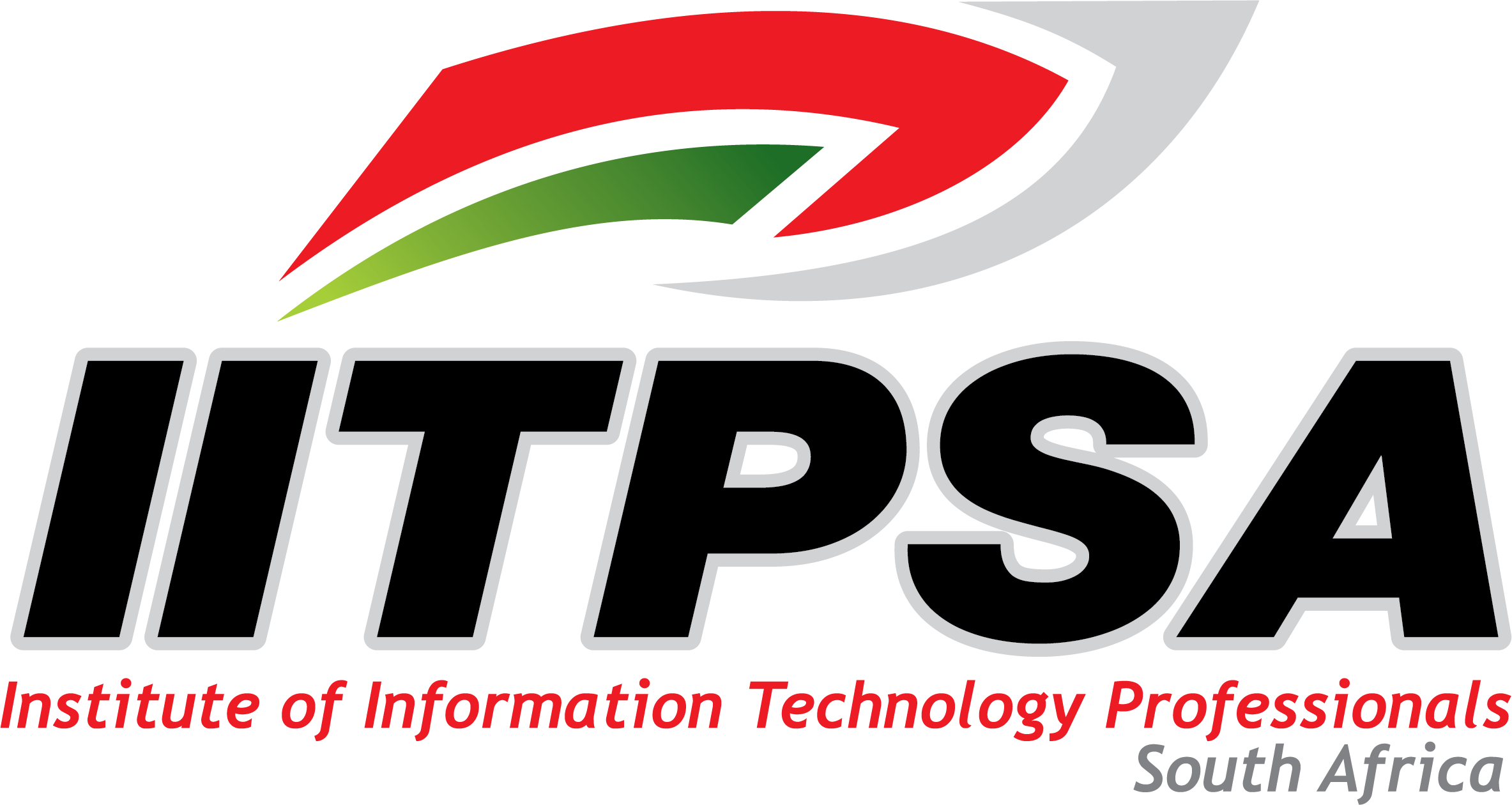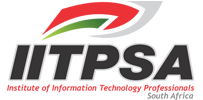 Meet James Selby. He was a DJ while still at school, and the only learner in South Africa to get 100% in the one-hour Applications Olympiad first round in 2016. James went on to achieve a silver medal in the finals.
Meet James Selby. He was a DJ while still at school, and the only learner in South Africa to get 100% in the one-hour Applications Olympiad first round in 2016. James went on to achieve a silver medal in the finals.
James Selby receiving his silver medal
from Barbara Mallinson, CEO of Obami
When asked recently what he would say to learners about the benefit of taking part in the Applications Olympiad he replied “it’s a great opportunity to widen what you can do in CAT” (Computer Applications Technology, the school subject).
Two years later James still runs his small business, Xtreme Sensory Productions. He recently added website design to his DJ work and says that learning HTML code for CAT was useful for this website work.
James is currently studying to be a Chartered Accountant at the Pearson Institute of Higher Education in Bedfordview. He says his second year course is not too difficult but he does find that the “amount of content” is challenging.
Being able to use computer applications is fast becoming essential for study and work. Applications help learners to make sense of data. They gain insight as they organize data to produce information that leads to useful knowledge and informed Insight. Making full use of word processing, spreadsheet and database applications is a key skill in today’s diverse world. The Applications Olympiad is designed to check skill in using applications from a basic level. But also to access data in fresh ways that may not have been taught in the classroom.
Round 1 of the 2018 Computer Applications Olympiad is easier than last year. There are also fewer questions, 20 not 25, giving more time to work out answers. All learners who are computer literate can benefit as they take part, including those who study CAT or IT. The questions test learners’ skills to make sense of data in different formats: word processing, spreadsheets and databases.
The First Round of the Applications Olympiad runs at participating schools from 7 to 11 May at any convenient time. It costs nothing to enter.
The Solutions Booklet with its varied ways to tackle each question is popular with teachers. It is emailed to schools soon after the contest. The offline marking remains quick and simple; one word or one number answers – either right or wrong. Where learners write the contest online, there is no marking at all for the teacher. Bronze, silver and gold certificates are awarded to the top 50% of learners across the country.
Round 2 is on Wednesday 6 June. It is a one hour contest and is online only. Those learners who qualify for Round 2 will stand a chance to earn Provincial Certificates and to be invited to the Finals in Cape Town on 26 June (all expenses paid).
At the Finals medals and cash prizes are awarded to the winners and to their schools.
For more information and to register, go to www.olympiad.org.za and click on Applications Olympiad

